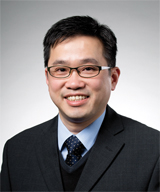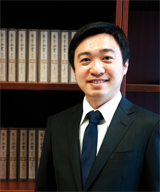通識教育模範教學獎 2012
時間: 3:30pm - 4:45pm
地點: 香港中文大學邵逸夫堂留足展覽廳
2012年度榮獲提名的老師有十三位。教務會通識教育委員會議決頒發「通識教育模範教學獎」予生命科學學院的招志明博士,以及哲學系的吳啟超教授。
招志明博士

Dr. Chiu Chi Ming obtained his BSc and MPhil in Biology from the Chinese University of Hong Kong and received his PhD in Zoology from the University of Hong Kong. Since 2000, Dr. Chiu has been teaching biology at CUHK. His enthusiasm in teaching is well appreciated and he was awarded the Exemplary Teaching Award by the Faculty of Science in 2012.

I am overjoyed and honoured to receive the Exemplary Teaching Award in General Education. This award not only recognizes my past efforts, it also brings me great encouragement and confidence to continue pursuing my future endeavors in teaching.
Biology, itself, is a fascinating subject, filled with intriguing concepts that are closely related to our lives. However, many secondary school students often feel discouraged and overwhelmed by the vast amount of memorization the public examinations require. As a result, students tend to drop out of biology and choose alternative subjects in higher learning. Driven by my passion in biology, I resolved to help them revisit the marvelous concepts in biology. I strongly believe that teaching GE courses is a good opportunity for teachers to share their passion in a particular subject.

All living organisms show some common characteristics which enable them to survive, reproduce and evolve on Earth. Some of these can be used to explain my teaching philosophy:
-
Complex but ordered organization. Living systems show hierarchical organization, from cells, organisms, populations, and eventually to all ecosystems on Earth. In the same way, I also arrange the topics in my courses in ascending order of complexity and learning difficulties. My goal is to help students interlink all the topics taught for a holistic picture of the subject.
-
Balance. Living organisms maintain a balance in harmony with the environment; this is known as homeostasis (穩態). For example, we have to maintain the balance among water content, temperature and glucose level in our body. In teaching, we also need to maintain a balance between the level of difficulty and degree of interest. A diverse array of students is enrolled in GE courses, and hence the course must be finely tuned according to their academic backgrounds. Students are not expected to grasp all the details covered in the courses. Instead, the aim of my courses is to help students build a foundation in biology to enable them to explore areas of interest in the future.
-
Response. All living organisms must constantly respond to the stimuli received in the surrounding environment. Similarly, in class, teachers must learn to be aware of students’ behaviors and respond to their needs promptly. Empathy is essential for building positive student-teacher rapport. For example, when students begin to yawn or fall asleep in class, I may pause and jokingly share with them an interesting story to lighten up the atmosphere. We must learn to respond to the students’ basic needs in order to facilitate effective learning in class.
-
Growth, development and reproduction. Every one of us started from a single cell, i.e. the fertilized egg of our father and mother. This cell grows in size and number and then develops into different tissues and organs that form our body. Later, we reproduce to increase the population. In the same sense, I hope my teaching can help students “grow” in knowledge and experience. And hopefully, in the future, they may “develop” new ideas by integrating what they have learned in biology and their own major subjects. Eventually, these students could “reproduce” by “infecting” their friends, parents and relatives, so that more people would learn to appreciate biology and also make wise decisions when confronted with inaccuracies, even outright fallacies on biology-related issues reported in the mass media.
-
Evolutionary adaptation. Overtime, organisms evolve in order to adapt to the changing environment. I believe that my teaching strategies must also “evolve” in order to meet the changing needs of students. The world is changing rapidly thanks to technological advancement; therefore, our teaching strategies must keep abreast of the needs of the students. Incorporation of new pedagogical systems, particularly e-learning approaches would certainly raise students’ interest level. In-class electronic interactive systems, such as Clickers or uReply, are not really gimmicks, as they appeal to students and foster student-teacher interaction in class. Subject-related online games also allow students to learn and build upon biological concepts after formal class in an interesting way and at their own pace.

吳啟超教授

吳啟超教授畢業於香港中文大學哲學系,其後再於該系完成哲學碩士及哲學博士學位。2009年,吳教授回到中大哲學系服務,先任導師,後於2011年轉任助理教授。從2009年至今,吳教授除執教該系的中國哲學課外,亦講授若干大學通識科目,涉及範圍A(中華文化傳承)與範圍D(自我與人文),包括:UGEA2100「中國文化要義」、UGEA2110「中國文化導論」、UGEA2140「中國文化與現代化」、UGEA2160「中國哲學主流思想」、UGED1800「思考方法」及UGED2852「自由與命運」。當中「自由與命運」一課是由吳教授於2010年提議開辦及設計。吳教授的研究興趣為中國哲學,尤以儒家哲學為其專長。

我出身中大,在學時修讀過幾門對我影響深遠的通識課,至今受用。2009年,我回到中大服務,得以在教師的崗位上,繼續參與通識教育。這次獲得通識教育模範教學獎,實在感到很榮幸。幾年來,我負責過的通識課涉及範圍A(中華文化傳承)與範圍D(自我與人文),但從科目種類和執教次數來說,我在範圍A的歷練算多一點(像UGEA2100「中國文化要義」,已教過七次)。雖談不上有何心得,但仍很樂意向各位報告我任教通識中國文化的經驗,分享一些想法。
就我任教過兩個範圍的經驗來說,範圍A似乎較難引起同學興趣。一方面,在華人社會成長的年輕人,總不會對中國文化全無所知。儒家道家思想、中國文學藝術的特質、傳統中國政治制度等等,或許已屬老生常談。但另一方面,中國文化如要講得深入,又可能令人有玄奧難明、高不可攀之感。我常想,換轉我是學生,看到「中國文化要義」之類課程,說不定也會敬而遠之。
故此,如何避免老生常談,又不至玄遠而離開實際生活,是我常常念及的課題。為免內容淺薄而枯燥,我提醒自己,別因為是通識課,便調低內容的深度。因為我發現,中大同學水平很高,樂於接受學習上和心智上的挑戰。有挑戰性才有趣味,所以我常力求深入。例如「中國文化講求天人合一」,這恐怕是誰都聽過的老生常談,但「天人合一」的觀念在傳統文化裏其實有好幾種形態,我會盡力深入剖析,並向同學講解相關原文——在清晰和生動的解說下指導同學閱讀經典,往往有助他們深刻而如實地認識傳統文化。
同時,我亦嘗試將中國文化對宇宙人生的種種看法,連繫於生活世界裏的各式現象,期望同學了解傳統文化與當前生活的相應之處,也喚起他們對生活的觸感和省察。像老子對於人間文化秩序的批判、莊子對於人生荒謬性的揭露、儒家對人性的剖析,以至中國傳統文學、建築、政治所反映的價值觀念,在在能刺激我們對生活、對世界有更立體的反思。為此,我常會留意社會上各種現象,亦常回想自己所親歷或耳聞目睹的生活故事,以至選取合適的小說、電影情節等,盡量結合課堂內容,使中國文化課得以活起來。
此外,我還會為課程設定一個目標:主角固然是中國文化,但我期望同學通過課程,學會一些方法,去分析和鑑賞其他文化。現在的學生比我當年有更多機會到外地遊學、交流和實習。我常想:同學去到異地,在街上看到一些特別的建築,在博物館看到一些著名的藝術作品,除了好奇和讚嘆之餘,還能否深思它們蘊含的意義?為此,我喜歡提供一套分析文化的問題框架:我相信,每一套文化內裏,其實都觸及一些普遍而根本的問題,例如甚麼是美好的生活、人在宇宙中的地位及其與天地萬物的關係、我們應如何面對生活上的順逆乃至死亡等等;而文化的種種具體表現,都寄寓著對這些問題的思考,中國文化自然有自己的答案,同時別的文化傳統也會提出別的回應。於是,我除了向同學剖析中國文化的特質之外,亦會將這些問題傳給同學,期望他們修畢課程後,能更進一步開拓自己的文化關懷、世界視野和多元思考。

總括而言,深入而不離生活、在世界文化視野下認識中國,是我教通識中國文化的兩項原則。
最後,我要感謝評委的勉勵,也要感謝師長、學生和家人的支持。回顧十幾年來的中大生活,無論以往身為學生,還是現在身為教師,都在通識教育裏得到很多。今次接受這個獎項,於我而言等同許下一個承諾:往後在教學上要繼續精益求精,努力做到誨人不倦。


